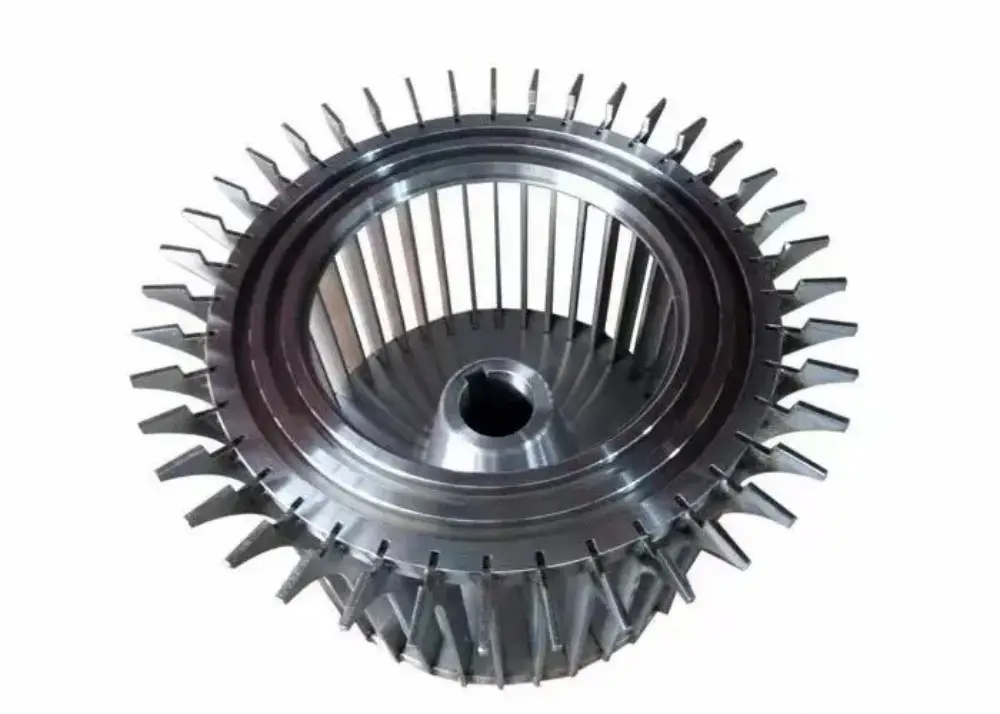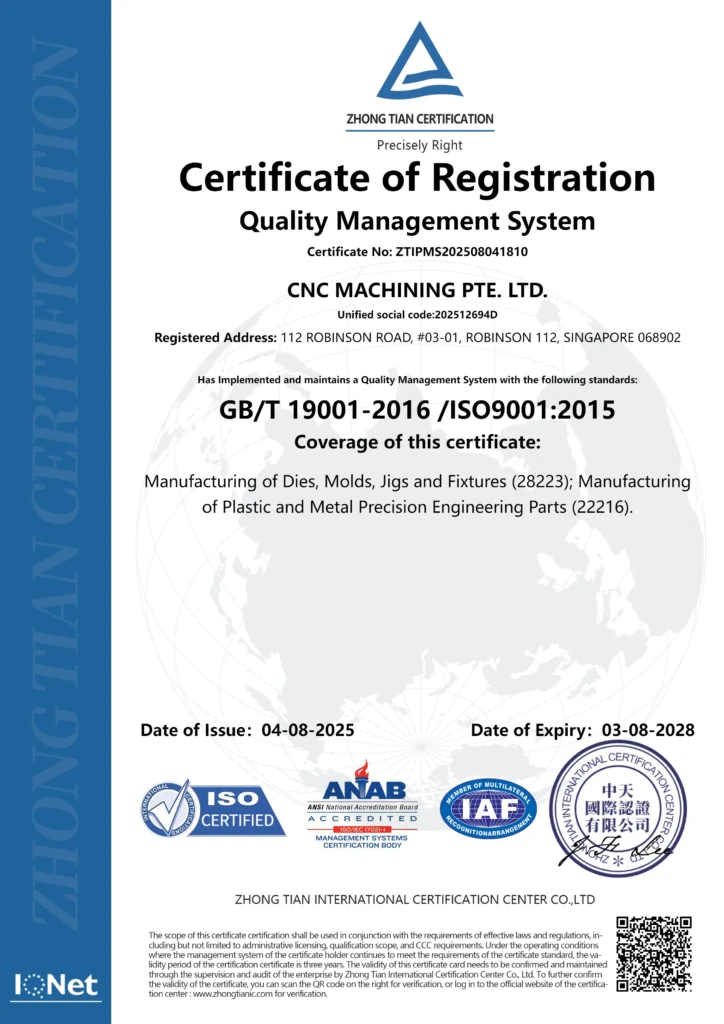Understanding TC4 and Inconel in Aerospace Applications
Titanium Alloy TC4 (Ti‑6Al‑4V) and Inconel superalloys (718, 625, 738) are the backbone of modern aircraft and spacecraft. Their exceptional strength‑to‑weight ratios and resistance to extreme heat and corrosion make them ideal for critical components—bulkheads, wing spars, turbine disks, combustion chambers, and exhaust systems. However, their superior mechanical properties also pose formidable machining TC4 and machining Inconel challenges that demand specialized expertise.
Core Challenges in Machining TC4 & Machining Inconel
- High Mechanical Strength
- Both materials exhibit yield strengths far above common steels (Ti‑6Al‑4V ~880 MPa; Inconel 718 ~1,310 MPa), increasing cutting forces and tool wear.
- Work Hardening
- Particularly severe in Inconel: subsurface hardening beneath the tool edge accelerates flank wear, requiring feeds that “bite” beneath the hardened layer.
- Low Thermal Conductivity
- Heat concentrates at the cutting interface, risking thermal cracking of tools and surface damage to parts.
- Abrasive Microstructure
- Hard carbides within Inconel and titanium’s alpha‑beta phases act like micro‑grit, demanding ultra‑hard, wear‑resistant tooling.
- Chemical Reactivity & BUE
- TC4’s affinity for tool materials forms built‑up edge (BUE), degrading finish quality and tool life.
- Elastic Springback & Chatter
- Titanium’s elasticity can cause dimensional bounce, while both materials’ high cutting loads can induce machine vibration.
Strategies for Successful Machining TC4 & Machining Inconel
Optimal Tooling Selection
- Carbide Grades: Ultrafine micro‑grain or sub‑micron substrates with AlTiN/TiAlN coatings resist heat and abrasive wear.
- Edge Geometry: Positive rake, honed chamfers, and polished flanks minimize cutting forces and BUE formation.
- Advanced Inserts: PCD tips for TC4 finishing; CVD diamond‑coated tools for non‑ferrous titanium machining.
Tailored Cutting Parameters
- Speed (SFM): Rough Inconel 718 at 50–150 SFM; finish TC4 at 200–300 SFM.
- Feed (IPR): Ensure feeds exceed the work‑hardened depth (e.g., 0.002–0.005″ per tooth) to prevent rubbing.
- Depth of Cut: Moderate (0.5–2 mm), balancing material removal with heat control.
Rigidity & Vibration Control
- Machine Stiffness: High‑rigidity 5‑axis CNC centers, robust spindles, and hydraulic/shrink‑fit toolholders.
- Fixture Design: Modular tombstones, vacuum pods, and custom vises eliminate flex and ensure repeatable clamping.
Advanced Coolant Delivery
- High‑Pressure Through‑Spindle Coolant (HP TSC): 1,000+ PSI to penetrate chip‑tool interfaces and evacuate heat.
- EP Formulations: Synthetic coolants with extreme‑pressure additives reduce friction and thermal damage.
The 5‑Axis CNC Advantage for Complex Aerospace Components
Complex TC4 and Inconel geometries—turbine blade roots, conformal cooling channels, impeller cavities—demand multi‑axis capability:
- Single‑Setup Processing: Eliminates multiple re‑setups, reducing cumulative errors and cycle time.
- Dynamic Tool Orientation: Maintains optimal engagement angles, consistent chip loads, and uniform tool wear.
- Enhanced Surface Integrity: Smooth toolpaths minimize witness lines and deliver flight‑critical Ra ≤ 0.8 µm finishes.
Key Performance Indicators & Quality Metrics
- Dimensional Accuracy: Hold ±0.005 mm on critical features.
- Surface Integrity: No micro‑cracks or tensile residual stresses; confirm via CMM and non‑destructive inspection.
- Tool Life: Monitor via spindle load and acoustic sensors—trigger tool changes before the onset of catastrophic wear.
- First‑Pass Yield: Target ≥ 95% with in‑process probing and SPC controls.
CNC Machining Pte. Ltd’s Material Mastery
As a Singapore‑based 5‑axis CNC machining specialist, CNC Machining Pte. Ltd transforms machining TC4 and machining Inconel from daunting tasks into routine production:
- Proprietary Cut‑Path Optimization: Years of process development yield toolpaths that balance heat, force, and surface finish.
- Integrated Process Monitoring: Vibration, temperature, and chip‑load analytics ensure real‑time corrections.
- Comprehensive Service Suite: From precision milling and turning to secondary finishing (deburring, heat treatment, NDT) and certification (AS9100D, ISO 9001).
- Rapid Prototyping & Production: Prototypes in days; scale‑up to full production with consistent quality and traceability.
Conclusion
Mastering machining TC4 and machining Inconel is essential for aerospace performance and reliability. By combining state‑of‑the‑art 5‑axis CNC technology, tailored tooling, precise process control, and advanced coolant delivery, CNC Machining Pte. Ltd delivers high‑performance titanium and nickel‑superalloy components that meet the most stringent aerospace standards. For engineers and procurement leaders seeking true material mastery, partnering with a certified, experienced CNC services provider is the key to unlocking these alloys’ full potential.
Contact CNC Machining Pte. Ltd today to discuss your toughest aerospace metal‑part challenges and achieve precision that others deem impossible.





